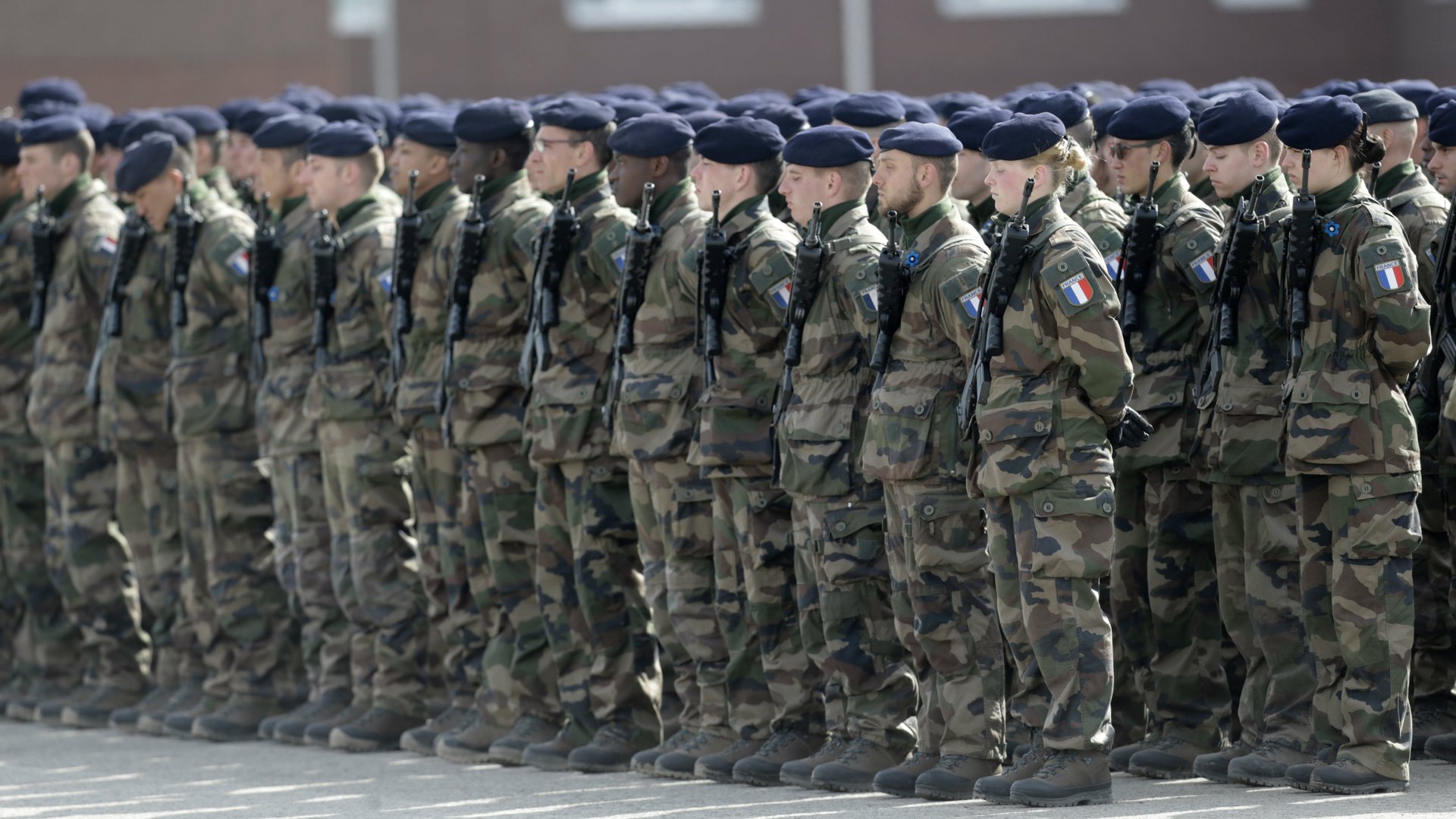Europe dreams of a common military but has too many types of tanks
Following two of last year’s biggest political surprises—US president Donald Trump’s election and Britain’s vote to leave the EU—European leaders say they can no longer rely on those countries to help shore up their defense. This has led to renewed talk of closer military ties between EU members. It will require overcoming differences in language, culture… and tanks.


Following two of last year’s biggest political surprises—US president Donald Trump’s election and Britain’s vote to leave the EU—European leaders say they can no longer rely on those countries to help shore up their defense. This has led to renewed talk of closer military ties between EU members. It will require overcoming differences in language, culture… and tanks.
EU commission president Jean-Claude Juncker said last week that Europe’s protection can no longer be “outsourced,” echoing an earlier warning from German chancellor Angela Merkel. Likewise, French president Emmanuel Macron said he would deepen cooperation between European powers.
The gap between US defense spending and the rest of world is vast. The Americans currently spend about €545 billion ($611 billion), more than double the EU, which includes Britain’s contribution for now, according to a European commission white paper published this month and cited by Juncker. The US invests about €108,322 per soldier, more than three times what the EU spends.
Also troubling for Europe, however, is the area of defense where it surpasses the US, which is in the number of redundant weapon systems. The American military has one main type of battle tank system, for example, whereas the EU has 17, according the white paper. Overall, the US has 30 separate types of weapon systems in the white paper’s selected categories, versus 178 for the EU.
The commission argues that EU member states are too small to be effective on their own, so there’s a need to harness continent-wide economies of scale. This is especially important when so many EU members’ national budgets are under strain.
“Absurdly, there are more helicopter types than there are governments to buy them,” Juncker said, according to the BBC. “We must do better.”
Brexit could make a common EU defense force more likely, as the UK has opposed to its creation but will soon have little say in the matter. EU officials, meanwhile, are pushing ahead with a possible multibillion-euro defense fund and the opening of a joint military headquarters.
And while Trump has been criticized for questioning NATO’s relevance, thereby weakening its effectiveness, there are concerns that an EU army, if that ever came to pass, could also undermine the military alliance. British colonel Richard Kemp argued in the Telegraph last year that an EU army would be an excuse for the bloc to divert money away from NATO.
Juncker is of the view that NATO and a stronger, more centralized European defense force aren’t mutually exclusive. Whatever happens, it’s a remarkable turnaround from a year ago, when the Brexit vote led some to believe the EU would soon cease to exist. Now, the talk among EU leaders is all about how to come closer together in fundamental ways.